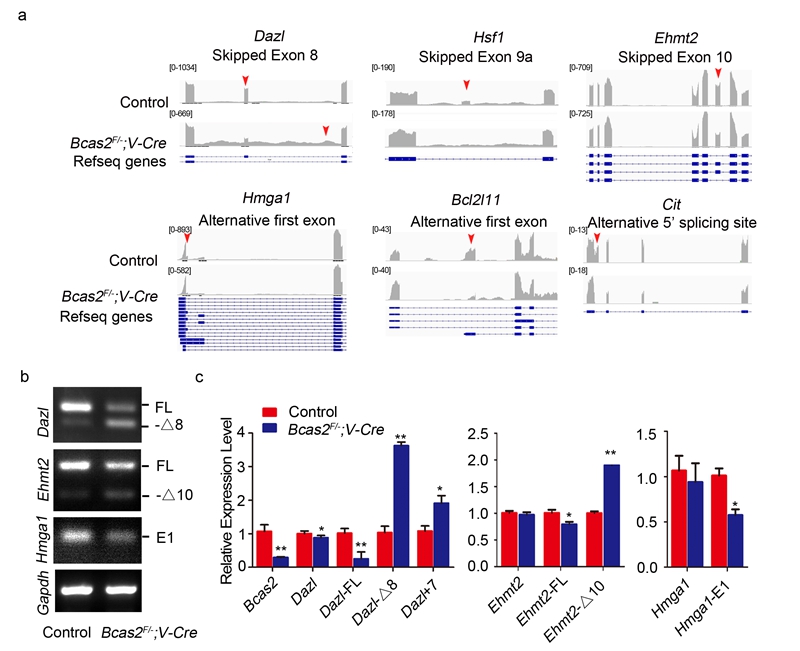Alternative splicing significantly expands the form and function of the genome of organisms with limited gene number and is especially important for several stages of mouse spermatogenesis. In addition, a number of trans-acting regulators of pre-mRNA splicing are primarily or exclusively expressed in mouse testis and may regulate the proper alternative splicing of germ cells. Despite protracted effort, deciphering how pre-mRNA splicing functions during spermatogenesis remains a great challenge for the field.
Recently, a work led by Prof. Lei Li in Institute of Zoology, Chinese Academy of Sciences, reported that BCAS2 is involved in alternative mRNA splicing in mouse spermatogonia and the transition to meiosis. In fact, BCAS2 is a small protein conserved in organisms and may play important roles in several processes including pre-mRNA splicing and DNA damage. Previously, Dr. Li’s research showed BCAS2 protecting the genomic integrity of mouse preimplantation embryos (Development. 2015 Nov 15; 142(22):3943-53. doi: 10.1242/dev.129841).
Strikingly, in this study, they found that BCAS2 is specifically enriched in spermatogonia of mouse testes. Conditional disruption of Bcas2 in male germ cells impairs spermatogenesis and leads to male mouse infertility. Although the spermatogonia appear grossly normal, spermatocytes in meiosis prophase I and meiosis events (recombination and synapsis) are rarely observed in BCAS2-depleted mouse testis. Taking the advantage of this model, they demonstrated an important role of BCAS2 involved in pre-mRNA splicing in the mitosis-to-meiosis transition of mouse spermatogonia. This research provides the first evidence for alternative splicing machinery regulating meiosis initiation in germ cells during mouse spermatogenesis and has been published online in Nature Communications (doi: 10.1038/NCOMMS14182).
This work was supported by the grants from the National Natural Science Foundation of China and the Beijing Municipal Natural Science Foundation.

Bcas2 is involved in pre-mRNA splicing in mouse spermatogenesis. (a) RNA-seq results showed that 245 genes are altered in alternative splicing forms in Bcas2 depletion mouse testis, including six spermatogenesis-related genes (Dazl, Hsf1, Ehmt2, Hmga1, Bcl2l11 and Cit). The aberrant splicing patterns in Dazl, Ehmt2 and Hmga1 were verified by RT-PCR (b) and quantitative RT-PCR (c).

